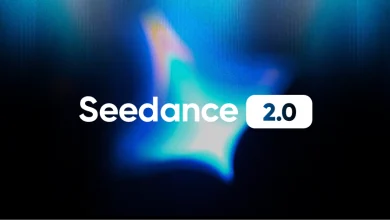
Artificial intelligence is evolving at lightning speed—and so is the regulation surrounding it. As the European Union finalises the EU AI Act, stakeholders across the tech, legal, and event planning sectors are watching closely.
For organisations preparing AI-focused conferences, understanding this legislation isn’t just useful—it’s essential. With insight from the EU AI Act, professionals can better anticipate how regulatory trends will influence content, compliance, and collaboration at these events.
In this article, we explore how the EU AI Act will shape the way we plan, present, and participate in AI conferences, and what this means for professionals, vendors, and regulators alike.
Image credit: Pexels
What Is the EU AI Act?
The EU AI Act is the world’s first comprehensive legal framework specifically designed to regulate artificial intelligence. It categorises AI systems by risk—unacceptable, high, limited, and minimal—and imposes obligations accordingly.
While the legislation will apply across the EU, it’s likely to influence global standards, particularly for multinational organisations and tech developers. AI conferences, which often serve as public showcases for emerging technologies, must now pay closer attention to legal classifications and ethical implications.
Reframing Conference Themes
As the Act introduces stricter controls on high-risk AI systems—such as facial recognition, biometric surveillance, and credit scoring—conference content will need to reflect a shift toward compliance.
Expect keynote speeches and panels to focus on:
- Regulatory alignment in system design
- Ethical AI implementation across industries
- Transparency in model training and data usage
For UK-based professionals, it’s also important to monitor how the UK’s approach to AI regulation diverges or aligns with the EU framework. The UK Government’s AI Regulation White Paper outlines a more flexible, context-driven model that may influence UK-based event discussions.
Compliance Conversations on Stage
Regulators and legal advisors will likely feature more prominently in conference agendas. Their role? To explain how the EU AI Act affects cross-border projects, data governance, and compliance obligations.
Speakers may explore:
- How to identify high-risk AI under the Act
- Required documentation and record-keeping
- Legal liability for system errors and harm
This is an opportunity for legal and ethical considerations to move from the sidelines into the spotlight.
Changing the Vendor Landscape
AI vendors often use conferences to demonstrate their products. With the EU AI Act in force, these demos must clearly distinguish between compliant and non-compliant systems. Failure to do so may result in reputational damage or even legal scrutiny.
Conference organisers should implement guidelines to:
- Ensure product demos disclose regulatory status
- Allow legal disclaimers during presentations
- Vet exhibitor content for risk-prone technologies
These practices promote informed engagement and protect both delegates and vendors.
Event Organisers: New Responsibilities
Those planning AI events must now take a proactive approach to compliance. This includes assessing the regulatory profile of their event topics and ensuring their agendas reflect best practices.
Organisers should consider:
- Inviting speakers with legal, data ethics, and compliance expertise
- Reviewing how sessions address bias, transparency, and accountability
- Sharing resources like the CDEI’s guidance on AI assurance with attendees
Doing so adds credibility and positions the event as forward-thinking.

Transparency and Algorithmic Accountability
Expect a rise in presentations that focus on how to achieve algorithmic transparency and explainability. As the Act requires high-risk AI developers to publish information about their systems’ capabilities and limitations, this topic will be of keen interest.
Panels may explore case studies of how AI bias was identified and addressed. Organisations like the Ada Lovelace Institute are contributing valuable research and frameworks for these discussions.
Training and Education Opportunities
Conferences serve as major hubs for professional development. Under the EU AI Act, training in ethics, compliance, and auditing will become essential.
Look out for workshops on:
- Ethical risk assessments for AI tools
- Legal documentation for product deployment
- Cross-border compliance scenarios for AI use
These sessions ensure that professionals stay informed and responsible in their roles.
Cross-Sector Collaboration
The AI Act encourages greater collaboration between developers, legal teams, and civil society. Conferences will likely foster multi-disciplinary panels that bring together experts from technology, law, healthcare, education, and government.
These collaborations support broader public trust in AI and demonstrate how regulation and innovation can work hand-in-hand. Organisations like the Royal Society continue to champion collaborative policy and science-based approaches to AI governance.
As enforcement of the EU AI Act begins, conferences will adapt their formats, priorities, and partnerships. Live demos may be replaced by curated showcases with regulatory annotations. Roundtables may include legal observers or civil rights representatives.
In this evolving landscape, events that proactively address regulation will stand out. Delegates want more than product showcases—they seek insight into how to navigate complex AI systems responsibly.
Final Thoughts: Regulation as a Catalyst for Smarter Events
Far from stifling innovation, the EU AI Act will elevate the quality of AI conferences. It shifts the focus toward responsible development, ethical deployment, and regulatory literacy. With this transformation, attendees gain more than inspiration—they leave with actionable insights grounded in law and policy.
Whether you’re an organiser, speaker, or delegate, embracing these changes positions you at the forefront of a smarter, more sustainable AI ecosystem.
Please note that this article is intended for informational purposes only and does not constitute legal advice. Always consult legal counsel or regulatory specialists if your event or organisation is involved with AI development, compliance, or cross-border deployment.





